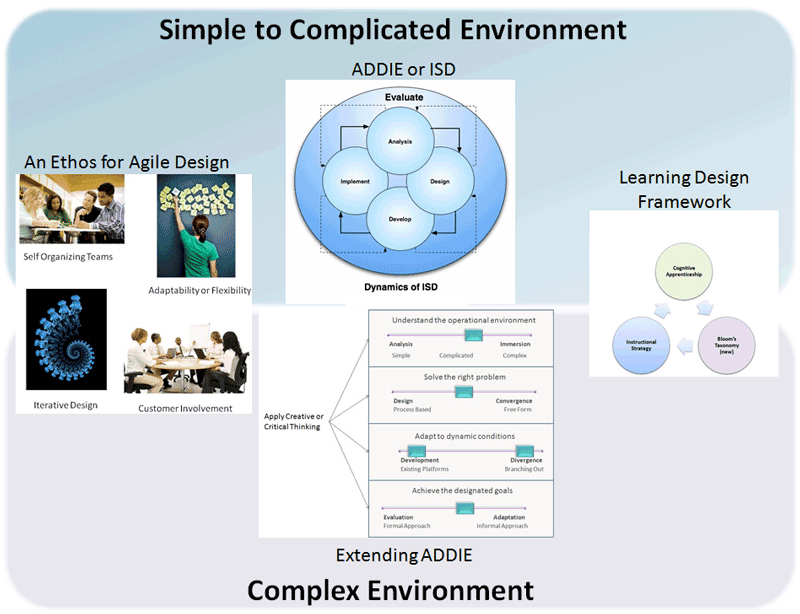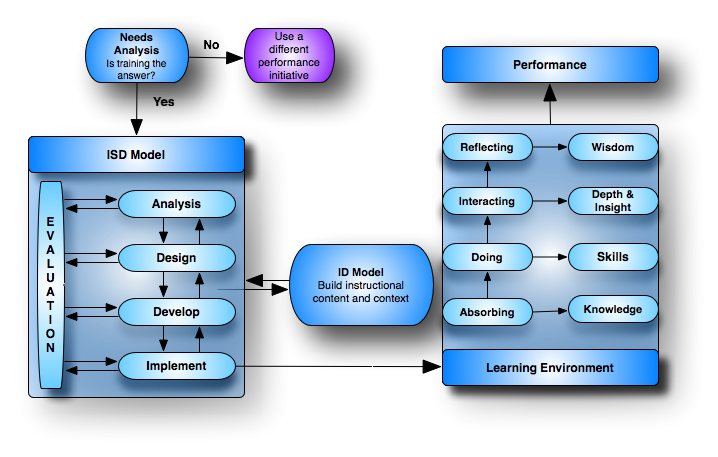Note: This site is moving to KnowledgeJump.com. Please reset your bookmark.
Knowledge Management
...for thousands of years, humans have been discussing the meaning of knowledge, what it is to know something, and how people can generate and share new knowledge. - Rudy L. Ruggles, Knowledge Management Tools, 1997
Simply put, knowledge management is about capturing knowledge gained by individuals and spreading it to others in the organization in order to manage it better.
Although a number of management theorists have contributed to the evolution of knowledge management, such as Peter Drucker and Peter Senge; Ikujiro Nonaka makes knowledge management an official discipline when he is appointed as the first distinguished professor of knowledge at the University of California in 1997.
Knowledge management can be viewed from two perspectives:
Knowledge = Object: relies upon concepts from "Information Theory" in the understanding of knowledge. These researchers and practitioners are normally involved in the construction of information management systems, AI, reengineering, etc. This group builds knowledge systems, while the next group changes the way we use knowledge, which ultimately changes human behavior.
Knowledge = Process: concepts from philosophy, psychology, and sociology. These researchers and practitioners are normally involved in education, philosophy, psychology, sociology, etc. and are primarily involved in assessing, changing and improving human individual skills and behavior.
Knowledge Management, as we know it today, is generally considered to have begun in the 1950's when Alfred Sloan divisionalized General Motors. It sent a message of the techniques necessary for large-scale business management. Although that view has somewhat changed today with human talent as being viewed as the primary competitive differentiator.
With knowledge management, the unmeasurable must be measured:
Every organization — not just businesses — needs one core competence: innovation. And every organization needs a way to record and appraise its innovative performance." — Peter F. Drucker, Harvard Business Review 1995
There are normally thought to be two kinds of knowledge:
- Explicit knowledge - It can be expressed in words and numbers and shared in the form of data, scientific formulae, product specifications, manuals, universal principles, etc. This kind of knowledge can be readily transmitted across individuals formally and systematically. also, it can easily be processed by a computer, transmitted electronically, or stored in databases.
- Tacit knowledge - This is highly personal and hard to formalize, thus making it difficult to communicate or share with others. Subjective insights, intuitions and hunches fall into this category of knowledge. Furthermore, tacit knowledge is deeply rooted in each individuals' actions and experiences, as well as in the ideals, values, and emotions that they embrace. The subjective and intuitive nature of tacit knowledge makes it difficult to process or transmit the acquired knowledge in any systematic or logical manner. For tacit knowledge to be communicated, it must be converted into words, models, or numbers that anyone can understand.
Also, there are two types of tacit knowledge:
- The "technical" dimension - This encompasses the kind of informal and hard-to-pin-down skills or crafts often captured in the term "know-how". For example, master craftsmen develop a wealth of expertise at their fingertips, after years of experience. But they often have difficulty articulating the technical or scientific principles behind what they know. Highly subjective and personal insights, intuitions, hunches and inspirations derived from bodily experience fall into this dimension.
- The "cognitive" dimension - It consists of beliefs, perceptions, ideals, values, emotions and mental models so ingrained in us that we take them for granted. Though they cannot be articulated very easily, this dimension of tacit knowledge shapes the way we perceive the world around us.
However, Karl Popper describes Three Worlds of Knowledge.
Robert Sutton, a professor of organizational behavior at Stanford's University School of Engineering, says companies have wasted hundreds of millions on worthless knowledge management systems (Computerworld (January 3, 2000, p. 28):
- The most valuable employees often have the greatest disdain for knowledge management. Curators badger these employees to enter what they know into the system, even though few people will ever use the information.
- The managers of these systems know a lot about technology, but little about how people actually use knowledge on the job.
- Tacit knowledge is extremely difficult to capture into these systems, yet it is more critical to task performance than explicit knowledge.
- Knowledge is of little use unless it is turned into products, services, innovations, or process improvements.
Knowledge management systems work best when the people who generate the knowledge, are the same people who store it, explain it to others, and coach them as they try to implement it. These systems must be managed by the people who are implementing what is known, not those who understand information technology.
For more information, see
- A Brief History of Information and Knowledge
- Knowledge
- Karl Popper's the Three Worlds of Knowledge
- Knowledge Management



